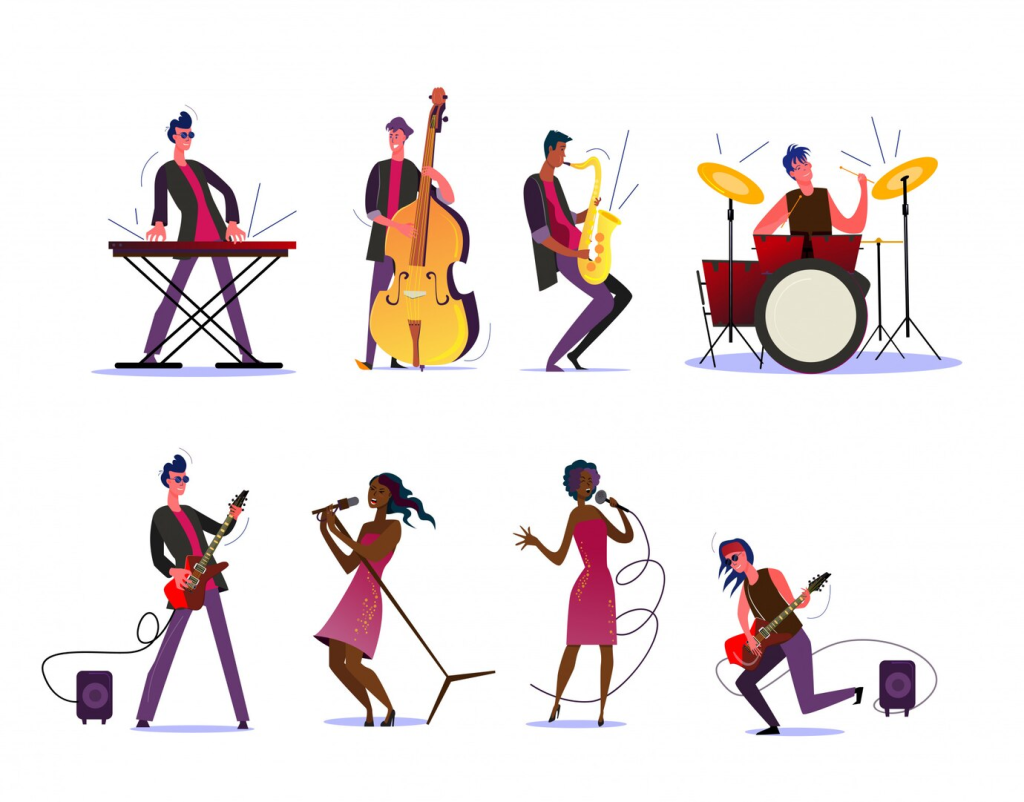Playing a musical instrument isn’t just a fun hobby; it has been shown to have significant benefits for your mental health. Whether you’re strumming a guitar, playing the piano, or learning the violin, the act of creating music can lead to emotional and psychological improvements. From reducing stress and anxiety to boosting memory and cognitive function, the impact of playing an instrument on mental well-being is both profound and scientifically supported.
Let’s explore the ways in which playing a musical instrument can positively affect your mental health and why you might want to consider picking up an instrument.

1. Stress Relief and Relaxation
Playing a musical instrument is an excellent way to relieve stress. When you focus on the rhythm and melody, it helps distract your mind from daily worries. Studies have shown that music reduces cortisol levels, which are linked to stress. Playing an instrument adds the element of active engagement, making it even more effective.
A study published in Psychology of Music showed that playing music actively reduces heart rate and blood pressure. These effects help promote relaxation. Music can be a great way to unwind after a busy day or during moments of anxiety.
Source
2. Boosting Cognitive Function and Memory
Playing an instrument involves complex brain processes like coordination, concentration, and memory. Whether you’re reading sheet music or syncing with the rhythm, your brain stays active. Studies by Harvard Medical School found that learning an instrument can increase the size of areas in the brain responsible for memory and motor skills.
Musical training can improve cognitive abilities. It helps with tasks such as memory recall and problem-solving. Children and older adults particularly benefit from this. For children, music aids in developing language and math skills. For older adults, it helps preserve cognitive abilities and delay neurodegenerative diseases.
Source
3. Emotional Expression and Self-Esteem
Playing an instrument provides an outlet for emotional expression. Music has a unique ability to evoke emotions. By playing, you can channel your feelings into the music. Whether it’s joy, sadness, or frustration, creating music allows you to release emotions that may otherwise be held inside.
Furthermore, mastering an instrument boosts self-esteem. The process of setting goals, practicing, and achieving milestones increases confidence. This sense of accomplishment fosters personal growth. It can help build a more positive outlook on life.
4. Social Interaction and Connection
Music is social by nature. Playing an instrument can provide opportunities for social interaction. Joining a band, orchestra, or even playing with friends encourages collaboration. It fosters a sense of community and belonging.
Research by The National Institutes of Health shows that group music-making promotes a sense of shared purpose. It also strengthens social bonds. These positive interactions help reduce feelings of loneliness and isolation.
5. Anxiety Reduction and Emotional Regulation
In addition to reducing stress, playing a musical instrument can lower anxiety. Playing music requires focus on the sound and rhythm. This focus acts as a form of mindfulness, which helps reduce anxiety and depression.
A study published in Frontiers in Psychology found that music therapy, including playing instruments, helps patients manage symptoms of generalized anxiety disorder (GAD) and depression. Music therapy has been shown to improve mood and emotional regulation.
Source
6. Mindfulness and Present-Moment Awareness
Playing an instrument requires complete focus on the present moment. Unlike other forms of entertainment, music demands your full attention. This attention is a form of mindfulness, which has been linked to better mental health.
Mindfulness helps with emotional regulation and stress management. As you focus on creating music, you’re grounded in the present. This reduces anxiety and improves your mood.
7. The Long-Term Mental Health Benefits of Music
The mental health benefits of playing an instrument go beyond short-term relief. Over time, it can contribute to long-term mental wellness. Music offers a sense of purpose and routine. Both are important for overall mental health.
For individuals with mental health conditions like depression or PTSD, music can aid in recovery. Engaging with music helps process emotions and trauma, supporting healing.h can help to reduce anxiety and improve your mood.
7. The Long-Term Mental Health Benefits of Music
The mental health benefits of playing an instrument go beyond just short-term stress relief. Over time, continued musical engagement can contribute to long-term mental wellness. Music offers a sense of purpose and routine, both of which can be important for overall mental health.
For individuals who struggle with mental health conditions like depression or PTSD, music can provide an outlet for coping and healing. Research has shown that engaging with music, whether through playing or listening, can help process emotions and trauma, ultimately supporting recovery.
Final Thoughts: Enhance Your Mental Health with Music
The benefits of playing a musical instrument for mental health are clear. From reducing stress and anxiety to boosting cognitive function and memory, playing an instrument can have profound effects on your well-being. Whether you’re learning to play for the first time or revisiting an old hobby, music provides a powerful tool for improving emotional and mental health.
By providing an outlet for emotional expression, fostering social connections, and encouraging mindfulness, music can become an integral part of your mental health routine. So, pick up an instrument and start experiencing the benefits today—your mind will thank you.
References
- Psychology of Music. Music and Stress: Psychological Effects of Music.
https://journals.sagepub.com/doi/full/10.1177/0305735614550242 - Harvard Medical School. The Benefits of Music for Your Brain.
https://www.health.harvard.edu/blog/why-musicians-brains-are-different-2019121218619 - Frontiers in Psychology. The Effect of Music on Anxiety and Depression.
https://www.frontiersin.org/articles/10.3389/fpsyg.2019.02673/full









